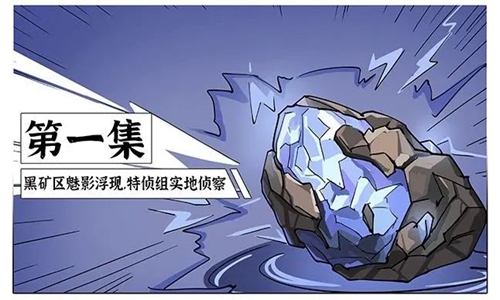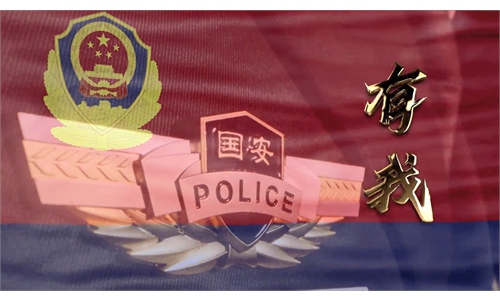New national security comic episode shows espionage activities in global competition for rare earths
Espionage activities involved in global competition for rare earths

China's Ministry of National Security published latest issue of its serialized comic on national security on January 21, 2024. Photo:Ministry of National Security
A comic released by China's Ministry of State Security (MSS) on its WeChat account on Sunday showed safeguarding the security of key mineral resources is an important part of national security and that infiltration, bribery, and espionage activities have been involved in the global competition for rare earth minerals.
The issue, the first in the storyline, depicts how national security police officers in Jiangzhou, which is a pseudo city, discover a group of suspicious individuals conducting exploration and mapping activities in the outskirts of the Xishan Mining Area, seemingly extracting ore samples in a secretive manner.
In the comic, titled The Secret Special Investigation Division (SPD), the Xishan Mining Area is portrayed as a place where important and scarce mineral products are stored. According to the comic, key materials for the development of "gravity cannons" and breakthroughs in superconducting technology were provided by this mining area.
In the story, a man with long hair is a spy leader who commands the group of suspicious individuals. He lies about conducting topographic surveys in the name of real estate development and offers workers a generous reward.
In a previous issue, the comic series featured several excerpts including a scene where a person of Western appearance is caught for suspected violation of the anti-espionage law. The comic series also introduces several main characters.
Li Wei, an expert on national security at the China Institute of Contemporary International Relations, told the Global Times on Sunday that the comic illustrates the diversity, complexity, and sharpness involved in maintaining national security.
Li Baiyang, an associate professor of intelligence studies with Nanjing University, said the mining area represents China's rare earth mineral resources in reality. Rare earth metals, known as "industrial gold," are key materials for the development of advanced military equipment, new energy, high-performance motors, and new materials in high-tech research and development.
According to statistics from the Institute of World Economy and Politics of the Chinese Academy of Social Sciences, global strategic critical mineral resources are highly concentrated in a few countries. China's published list of critical minerals overlaps with the US in 21 categories, and with the European Union in 17 categories.
With the escalation of China-US trade friction and increasing global geopolitical tensions, the competition for rare earths has risen to the level of national security. For a long time, countries such as the US, Japan, and those in the EU have coveted China's rare earth mineral resources, attempting to control the global rare earth industry chain. They have even resorted to infiltration, bribery, and espionage to achieve their goals, Li Baiyang noted.
Li Baiyang also mentioned several details worth-noting from the comic. The illegal surveying and mapping that those suspicious individuals are engaging in is a typical method used by spies.
In response to the major risk posed by the leakage of critical geographic information and surveying and mapping data, the newly revised Counter-Espionage Law and Data Security Law have included critical and sensitive data in the scope of national security, experts noted.
The ministry previously stated in an article that key mineral resources refer to metal elements and their deposits that have irreplaceable and significant applications in advanced industries such as new materials, new energy, next-generation information technology, artificial intelligence, biotechnology, high-end equipment manufacturing, and national defense.
They are the critical material foundation that supports energy transformation, technological progress, and industrial upgrading. Just as human life cannot do without vitamins, key mineral resources are the "vitamins" of strategic industries and are crucial for national development and security, the ministry stated.



